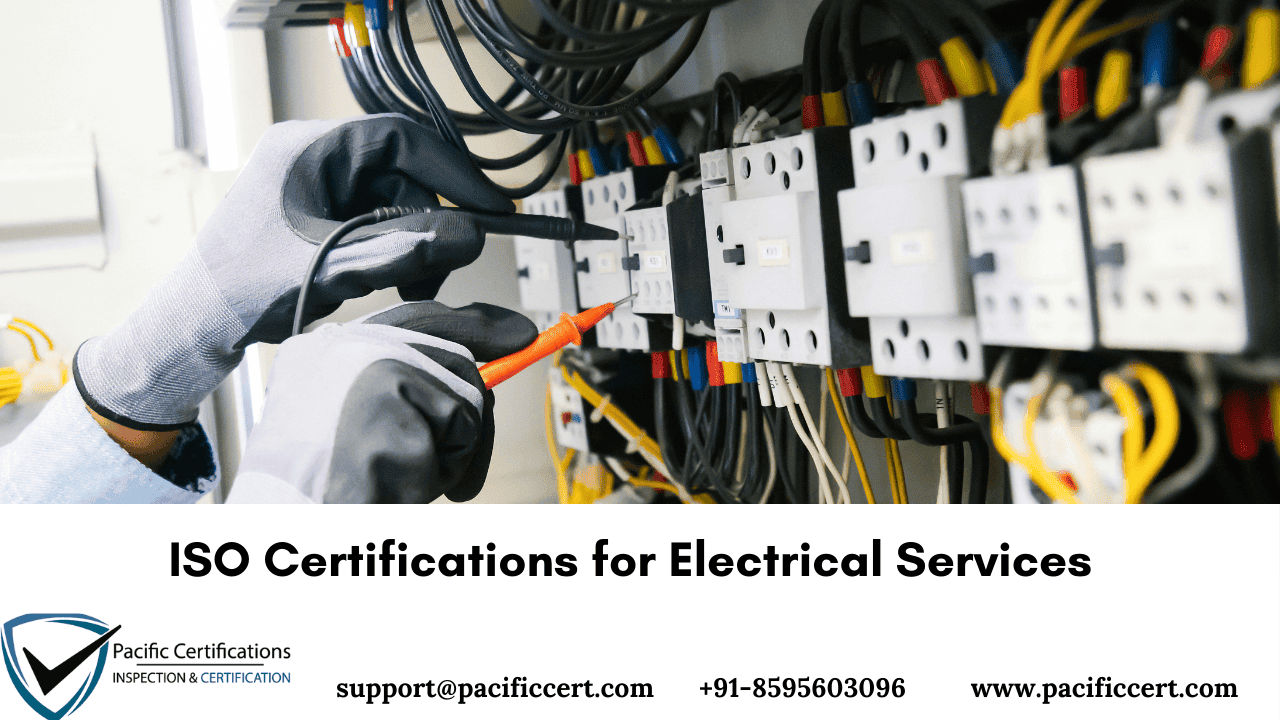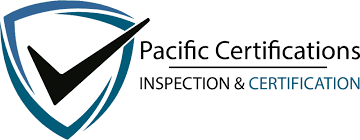ISO Certifications for Electrical Services, Requirements and Benefits

Introduction
The electrical services sector plays a critical role in modern infrastructure. From installation and maintenance to large-scale contracting projects, service providers operate in environments where safety, compliance, and quality are essential. ISO certifications offer internationally recognized frameworks that help companies strengthen their systems, reduce risks, and build trust with clients and regulators. By adopting these standards, electrical companies can demonstrate their commitment to quality service delivery and efficiency.
Electrical services are critical in both residential and industrial settings, making it essential for service providers to adopt international standards. ISO certifications not only establish credibility and ensure consistent service quality.
In the electrical industry, compliance and reliability are not just expectations; they are lifelines that keep people safe, operations running, and businesses competitive.
If you are looking for ISO Certification for your Electrical Industry business, contact us today at [email protected]
Applicable ISO Standards for Electrical Services
The Electrical Services can benefit from various ISO standards. Here are some applicable ISO standards for the Electrical Services Industry:
ISO 9001:2015 Quality Management System (QMS)
ISO 9001 sets the foundation for quality management. It helps electrical services companies establish consistent processes for installations, maintenance, and repairs.
ISO 14001:2015 Environmental Management System (EMS)
ISO 14001 focuses on environmental responsibility. An electrical company can adopt ISO 14001 principles by implementing eco-friendly lighting solutions and properly disposing of old electrical components to minimize environmental impact.
ISO 45001: Occupational Health and Safety Management System (OHSMS)
ISO 45001 helps ensure a safe working environment for employees and contractors. An electrical services provider could use ISO 45001 to establish safety protocols and reduce workplace accidents.
ISO 50001: Energy Management System (EnMS)
Energy efficiency is crucial for electrical services companies. ISO 50001 assists in optimizing energy use and reducing operational costs.
ISO 55001: Asset Management
Managing electrical assets effectively is essential. ISO 55001 can help in maintaining, upgrading, and ensuring the reliability of electrical infrastructure.
ISO 27001: Information Security Management System (ISMS)
Ensuring data security is crucial, especially for electrical services companies that handle sensitive client information.
ISO 19650: Building Information Modeling (BIM)
BIM is increasingly used in construction projects that involve electrical systems. ISO 19650 provides guidelines for managing digital information throughout the project lifecycle.
ISO 10007: Configuration Management
Configuration management is essential for controlling changes to electrical systems and ensuring they remain compliant with specifications.
Click here to find out more applicable standards to your industry
These ISO standards can help electrical services companies enhance their processes, meet regulatory requirements, improve safety, and demonstrate their commitment to quality and sustainability to clients and stakeholders.
What are the requirements of ISO Certifications for Electrical Services?
To achieve ISO certification, electrical service providers must demonstrate that they have established systems and practices that comply with international standards for quality, safety, and environmental responsibility.

Define the scope of services, regulatory obligations, and the expectations of stakeholders.
Establish policies and objectives endorsed by top management, along with defined roles and responsibilities.
Carry out risk assessments and hazard identification specific to electrical activities and projects.
Develop documented operational procedures for installations, inspections, testing, and maintenance.
Provide training, resources, and awareness programs to ensure staff competence and safety.
Implement measures to manage environmental aspects such as energy use, chemical handling, and waste disposal.
Maintain documented records and evidence of compliance through audits, reviews, and corrective actions.
Continually evaluate performance and update processes to strengthen the effectiveness of the management system.
Tip: Organizations often begin with ISO 9001 and ISO 45001, since these directly address quality and safety. Once the foundation is in place, ISO 14001 or ISO 50001 can be integrated to support sustainability and energy efficiency goals.
Meeting these requirements involves a systematic approach, documentation, training and monitoring. It's important to engage employees and stakeholders to ensure the successful implementation of ISO standards in the Electrical Industry.
Contact us at [email protected] to know more!
What are the benefits of ISO Certifications for Electrical Services ?
Certification delivers measurable improvements in safety, efficiency, and credibility while opening doors to new business opportunities. Here are some key advantages:
ISO 9001 certification ensures standardized processes and quality control.
ISO 45001 focuses on occupational health and safety, helping electrical services to establish safe working conditions and practices.
ISO 14001 certification demonstrates a commitment to environmental sustainability.
ISO 50001 focuses on energy management, helping companies optimize energy use and reduce operational costs.
ISO certifications set companies apart from competitors by showcasing their dedication to quality.
Many clients prefer working with ISO-certified providers, potentially leading to increased business opportunities.
ISO certifications are often prerequisites for participating in tenders and contracts.
Certifications open doors to new markets and clients.
ISO standards help identify and manage risks in various aspects of operations.
ISO 27001 certification safeguards client data and intellectual property.
ISO 55001 aids in effective asset management, ensuring the reliability and longevity of electrical infrastructure.
ISO certifications are internationally recognized symbols of quality and competence.
ISO standards promote a culture of continuous improvement.
The electrical services industry is experiencing steady growth, driven by rising demand for infrastructure development, renewable energy integration, and smart technologies. The global market is projected to exceed 180 billion USD by 2030, with an annual growth rate of more than 6 percent. Alongside this expansion, regulatory scrutiny and client expectations around safety and sustainability have intensified. Electrical-related incidents continue to account for nearly 7 percent of occupational fatalities worldwide, which makes occupational health and safety certifications such as ISO 45001 a growing priority for contractors and service providers.
Energy efficiency is another major driver, with organizations certified to ISO 50001 reporting average cost savings of 10 to 20 percent within the first three years of implementation. Digitalization and the adoption of smart grids have also introduced new cybersecurity challenges, with agencies such as ENISA reporting a 40 percent rise in cyberattacks on critical infrastructure year over year, which underscores the relevance of ISO/IEC 27001. Furthermore, ISO 9001, ISO 14001, and ISO 45001 certifications are now commonly required in both government and corporate tendering processes, making certification an essential factor for competitiveness in the electrical services sector.
Conclusion
In conclusion, ISO certifications provide tangible benefits to electrical services, including improved quality and safety. These certifications enhance business performance & contribute to a positive image in the eyes of clients and stakeholders.
Contact Us
Pacific Certifications is accredited by ABIS, in case you need support with ISO certification for your business in Electrical Industry, contact us at [email protected] or +91-8595603096
Author: Ashish
Read more: Pacific Blogs

